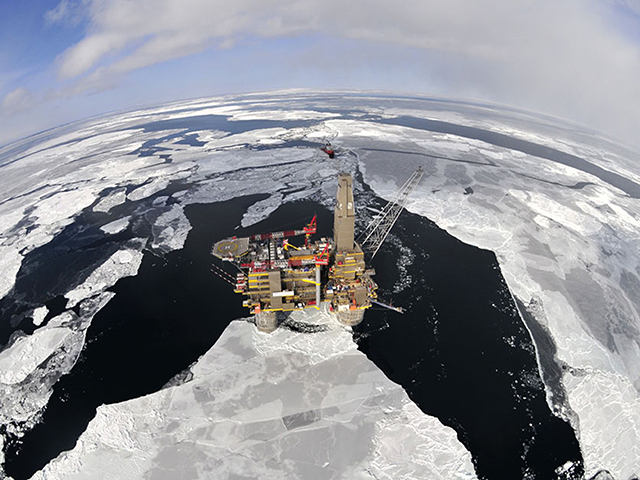
Russia, where energy production provides more than half of state revenue, is preparing for a battle with oil producers over taxing the country’s most vital industry.
Oil’s rout has made an agreement last year, which reduced export taxes in return for higher levies on extraction, unworkable because the plan was based on $100 a barrel crude. Producers led by state-controlled OAO Rosneft have proposed changes to the tax regime, Deputy Energy Minister Kirill Molodtsov said in an interview.
On the brink of its first recession since 2009, Russia’s state coffers are being depleted by lower energy revenue as sanctions and a plunging ruble put further pressure on the economy. While the government must maintain funds from oil, it can’t afford to wipe out the industry’s profitability and risk harming future production prospects.
“We face new realities and the entire set of taxes, and possible changes, are being weighed now,” Molodtsov said in Moscow. The proposals must be submitted to a presidential commission by the end of this month, a solution isn’t likely until the start of April at the earliest, he said.
Last year, the federal treasury got 6.75 trillion rubles of taxes from oil and petroleum products, or almost $178 billion using the central bank’s average exchange rate. As Russia reviews this year’s budget, the Economy Ministry is working on an average oil price of $50 per barrel compared with $98 in 2014.
The impact of lower prices will be partially offset by the weaker ruble, which has fallen 47% in the last 12 months against the dollar, making dollar income from oil go further when spent domestically.
Rosneft Chief Executive Officer Igor Sechin, a long-time associate of Vladimir Putin, discussed the tax regime with Russia’s president last week. Putin said everyone must honor the state’s interests.
“The interests of the company are important, because the company is a sector-forming one, but there are also the interests of the economy in general,” he said.
Nonetheless, the government recognizes some adjustments may be needed.
The Energy Ministry is analyzing possible changes in formulas to calculate oil export levies and crude extraction tax, as well as excise duties for petroleum products, Molodtsov said. It’s also discussing proposals to delay a planned ban on selling Euro-4 gasoline, an inferior grade to the current European benchmark, from 2016, as well as possible changes in planned refinery upgrades, he said.
Last year, Russia decided to gradually cut its oil export taxes in 2015 to 2017 to bring them in line with those of Kazakhstan, one of its two customs union partners. The government compensated for the reduction by accelerating increases in the extraction tax, based on average oil prices at $100 per barrel.
Even though higher extraction taxes cut the profit from refining crude in Russia, the three-year tax plan should have provided about $20 of additional profit a ton ($2.7 a barrel) from drilling to compensate large oil companies, Molodtsov said.
While the crude margin has roughly halved in current prices, refining is still profitable for those who produce light products, he said.
“If we compare with Europe — taking into account the margin growth there — it’s still higher in Russia even in dollar terms,” he said.
Crude producers will only benefit from the existing tax plan if the average oil price exceeds $70 this year and $55 in 2017, said Denis Borisov, director at Ernst & Young’s oil and gas centre in Moscow.
At current prices, the companies would lose $0.6 per barrel from crude production this year and about $0.3 by 2017, when the plan expires, Borisov said. The refining margin for most plants would be at a “symbolic” $1 within three years unless they are upgraded, he said.
While Russia’s largest oil company, Rosneft, hasn’t changed its plans for refinery upgrades, the existing structure sets a large risk given the current market situation, its press service said by e-mail.
The state budget shouldn’t face losses, the Finance Ministry’s press service said.
For more oil and gas stories click here.
Recommended for you
